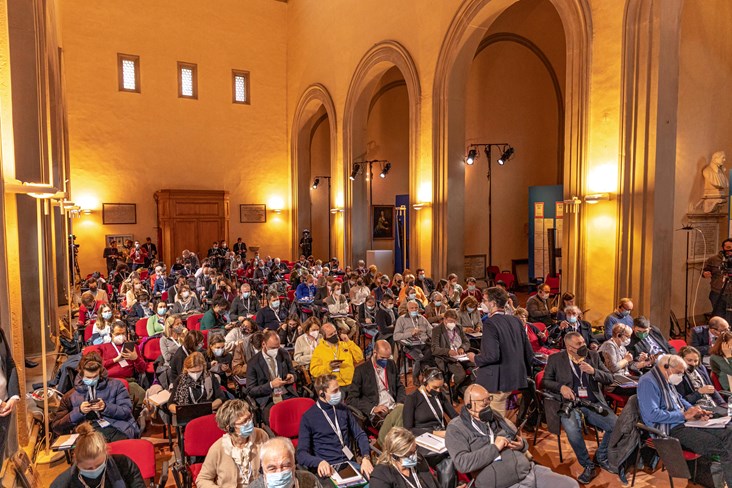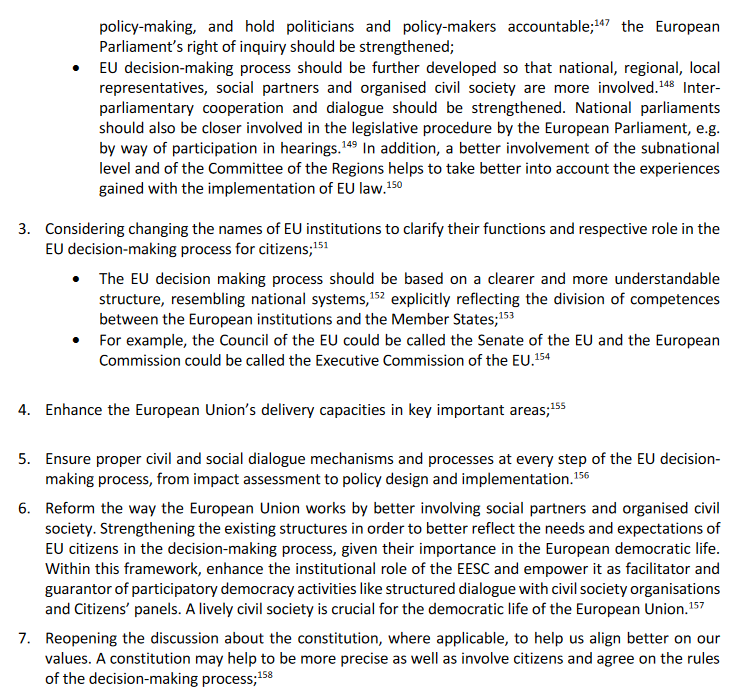Draft report, endorsed by the European Parliament, proposes swathe of measures aimed at strengthening transparency and participation for citizens and parliaments.

Conference on the Future of Europe produces proposals, including related to transparency
On 27 April, the Conference Plenary of the Conference for the Future of Europe (CoFEU) adopted its list of draft proposals that emerged after a lengthy process of meetings in different citizens’ panels (both European and national) involving 800 European citizens, as well as decentral, bottom-up, and online events and discussions, on different topics related to the future of the EU.
The 49 draft proposals are divided into 9 key areas, resulting in some 325 concrete actions to take. The measures related to enhancing decision making transparency were placed under proposal 39 (“EU decision making”) in area 7 (“European democracy”). The measures cover aspects related to improving the visibility of decision making, opportunities for participation therein, accountability to parliaments, and the intelligibility of EU institutions and processes.
(article continues below images)


Transparency also on the international stage
In a separate proposal (proposal 22, “transparency of the EU and its relations with the citizens”) under area 4 (“EU in the world”), further measures are tabled for improving transparency about the EU’s actions on the international stage. Here, it calls for enhanced proactive communication about the EU’s policy line and positions, closer involvement of citizens, and general public educational about and promotion of the EU and its role as a community of values.
(article continues below image)

Do the transparency proposals require treaty change?
The measures are formulated in a manner that makes it not immediate discernible whether they require treaty change to be realised. For example, “guaranteeing [a] broader right of access to documents” could be interpreted in multiple ways, requiring either treaty change, legislative change, or simply adjustments of implementation protocol or organisational culture. A similar point applies to the call for “better dialogue between citizens and the EU institutions” and “better involving social partners and organised civil society”. On the other hand, the idea of allowing independent citizens’ observers close(r) access to decision-making processes begs the question of their manner of selection, precise access and role, and relation to the duty of professional secrecy (TFEU article 339), open-ended questions which might require treaty clarification.
These ambiguities notwithstanding, the prevalent message that the citizens participating in the CoFEU wanted to convey through proposal 39 appears to be a sense of unjustified distance, seclusion, and incomprehensibility of the EU’s decision-making structures and processes.
Next steps: the future of the Conference on the Future
On 4 May, the European Parliament in a resolution embraced the list of recommendations of the Conference Plenary, calling for treaty change. However, already a day after the adoption of the proposals by the Conference Plenary (and thus before the European Parliament took its position), the anti-federalist and conservative ECR group announced its withdrawal from participation in the CoFEU process. Given the relatively small size of this bloc, this withdrawal had no impact on the vote on the proposed resolution, which was adopted by a simple majority.
Having taken the first hurdle of finding majority support of the European Parliament, the ball is now in the court of the member states. It is the institution representing their interests in matters of constitutional or strategic interest, the European Council, in which the power to initiate an Intergovernmental Conference (IGC) is vested. Change of the European treaties is not possible without an IGC. Moreover, newly proposed treaties are subject to unanimous approval of all member states, in accordance with their constitutional procedures for the adoption of treaties, which in some cases entails the organisation of a referendum.
Various member states have gone on record against the idea of treaty change. However, the tide may be turning. Recently, the French Council Presidency and the incoming German government have made favourable overtures towards the idea. Moreover, in a speech in the European Parliament, Italian Prime Minister Draghi threw his weight behind the idea, calling for “pragmatic federalism”.

